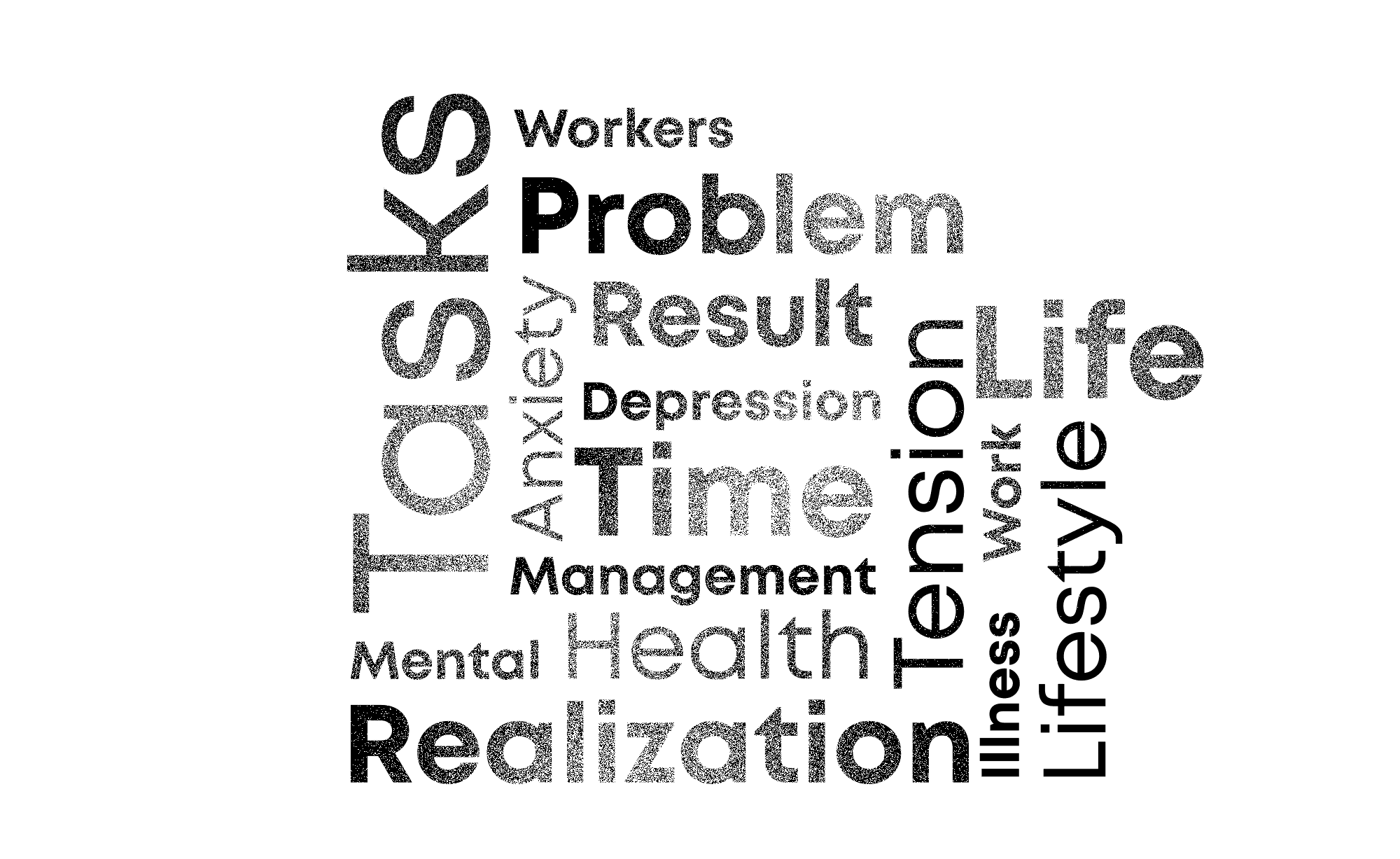How Stress Stole Job Satisfaction
Ena Bartolec
2022-12-07
6min
HR
Studies are reporting that more than 90% of workers report feeling a dose of stress at work at some moment. Is this something employers should be worried about?
The 2nd of November is Stress Awareness Day. Stress is the topic of our daily discussions and almost a common part of everyone’s life. The physiological and endocrinological mechanisms underlying the stress “fight or flight” responses are not a modern invention of our body, they have a long history. Causes of stress have changed during time, but our responses remain pretty much the same. How (good) are we at handling stress in today’s fast-paced and dynamic world?
Workplace stress
In today's work environment, in one moment we can feel that we have everything under control and that we should be able to meet deadlines, but in another - chaos. Tight deadlines, long working hours, and ever-increasing demands can be very stressful and make you feel worried, drained, and overwhelmed.
The WHO defines stress as any type of change that causes physical, emotional, or psychological strain. Stress is your body's response to anything that requires attention or action. But, stress isn't about the actual situation. We usually feel stressed when we think that the demands of the situation are greater than our resources to deal with that situation. For some people this might be a public presentation, while for others it could be being stuck in a traffic jam.
Workplace stress happens when there is a conflict between job demands on the employee and the amount of control an employee has over meeting those demands. In general, the combination of high demands in a job and a low amount of control over the situation can lead to stress.
The main causes of workplace stress are workload, interpersonal issues, balancing work and personal life and job security.
Stress contributes to decreased organizational performance, decreased employee overall performance, high error rate and poor quality of work, high staff turnover, and absenteeism due to health problems, work-life imbalance; and consequently lower employee satisfaction.
Work-related stress doesn’t always just disappear when you head home from work. When stress persists, it can really take a toll on your health and well-being.
Is stress always the “bad guy”?
Stress isn’t always a negative influence. Some stress is expected and can be a positive force in our lives. In fact, it is often what provides us with the energy and motivation to meet our daily challenges both at home and at the workplace. This type of stress response is what helps you “rise” to the challenge and meet your goals.
In the past, a little dose of stress helped us to be on guard - to listen more carefully, to watch out for any movement around us, to be prepared to react if an animal tries to attack us. Today, for example, if you have a delicate meeting with a client, a little stress can help you perform better, avoid mistakes and communicate ideas clearly.
Coping strategies
Today most of our problems cannot be solved with the fight or flight response. We have to work through our problems and find constructive solutions. People have developed different coping strategies. Most people manage stress well and continue to function while a few may have difficulty coping with it and could benefit from talking with a professional (e.g. a psychologist).
The top method people use to manage stress at work is to sleep more. Other ways to manage stress include: consuming more caffeine, smoking, exercising more frequently, taking over-the-counter or prescription medication and consuming more alcoholic beverages. (Source: Anxiety and Depression Association of America)
Since the causes of workplace stress vary greatly, so do the strategies to reduce or prevent it. That’s the thing - you cannot always avoid stressful situations on the job. Yet you can try to manage work-related stress. Try to find the combination that suits your situation the most.
How do you do this?
Try to be aware of what causes stress. Track stressors. Think about your feelings, thoughts and reactions following the events, environment and people involved. Try to find patterns and then avoid similar situations or find an alternative way of reacting to these situations.
Reduce exposure to stressors. Reset and redefine the expectations of your colleagues, supervisors, clients, as well as your friends and family members. Ground the rules for what and how much you’re willing to take on. Try to develop coping skills, such as time management, avoiding overtime work, conflict resolution, etc.
Change your perspective. Think about what aspects of your situation can be fixed and which you can change. Are there some tasks you could delegate to free up your time and energy for others? Can you ask for assistance? Can you step out of the project to zoom out on the bigger picture? Or could you build some positive, supportive relationships to counteract the ones that drain you? Altering your perspective can buffer the negative impact of even inflexible or unchangeable aspects.
Develop healthy responses. Overeating or getting drunk isn’t the right way to reduce or fight stress. But, there is a wide range of options:
Exercising or any kind of physical activity triggers a release of dopamine and serotonin, which can improve your mood.
Enjoying your hobbies and favorite activities (reading books, hanging out with friends and family, something that brings you pleasure)
Building healthy sleep habits can help you increase your energy levels and be ready to face challenges, improve your mental health and your mood, as well as strengthen your immune system.
Seek out connections. Surround yourself with positive people and interactions. Find support inside your company - maybe there are more people dealing with the same problems as you are. Offer mutual support, identify problems, and brainstorm solutions. That way, you will increase your sense of control and connection.
Get some professional help. If you continue to feel overwhelmed by work stress, you may want to talk to a psychologist, who can help you better manage stress and change unhealthy behaviors.
Should employers be worried about workplace stress?
Long-term stress can be a serious problem. Sometimes it can lead to burnout. According to Maslach and Leiter (2016), job burnout is a special type of work-related stress — a state of physical or emotional exhaustion that also involves a sense of diminished professional efficacy (also known as a lack of personal accomplishment) and a feeling of cynicism, sometimes also called depersonalization.
Employers should provide a workplace environment with a minimum amount of stress. Try to:
Design jobs to allow for a balanced workload. Allow employees to have control over the tasks they do as much as possible.
Be clear about job expectations.
Make sure job demands are reasonable by providing manageable deadlines, hours of work, and clear duties as well as work that is interesting and varied.
Value and recognize individuals' results and skills.
Provide support.
How are we trying to ensure a stress-light work environment at Cinnamon?
Flexibility. We ensured flexibility for our Cinnabuns. They can arrange their working hours in whichever way suits them most (due to their private obligations) and can work either from home or from the office (with a nice view from the 9th floor and a beautiful grassy terrace).
Mental health care. Also, we have psychologists in our HR team, so they provide counseling services to our employees. Whenever a team member is facing obstacles, both professional or private, they can ask for help.
Physical health care. Each year, our employees have access to a complete medical exam paid in full by the company. We also encourage employees to be active, so we provide a paid-for Multisport card that can be used at a number of sports facilities and gyms across the country.
Support. Important life events can be stressful. We provide a day off if you are moving, getting married, or just had a child.
Job satisfaction. Each year, we conduct an employee satisfaction survey, to check the satisfaction levels amongst our employees. We need to know what we are doing well and where we can improve. To show to our Cinnabuns that we care about their opinion and how they feel at work, we ask them for feedback. We want to build trust and prove to them that we listen and want to create the best experience possible.
The power of pets. Cinnapets are welcome! Our pet-friendly office is host to at least one dog every day. Interacting with animals has been shown to decrease levels of cortisol (a stress-related hormone) and lower blood pressure. Other studies have found that animals can reduce loneliness, increase feelings of social support, and boost your mood. And you don’t even have to wait to come home to pet your pet! :)
Prioritize yourself!
Any job can have stressful elements, even if you love what you do. The thing is to try and manage your stress, but also look for the root cause(s) of the stress and take steps to address them.
It’s essential to replenish your physical and emotional energy, along with your capacity to focus, by prioritizing good sleep habits, nutrition, exercise, social interactions, and practices that promote calmness and well-being. Meet your friends for a drink or a coffee, read a book, go hiking, do yoga or something creative. Dedicate this time for yourself!
And remember: “Don't worry about a thing, 'cause every little thing gonna be all right.”
Subscribe to our newsletter
We send bi-weekly blogs on design, technology and business topics.















